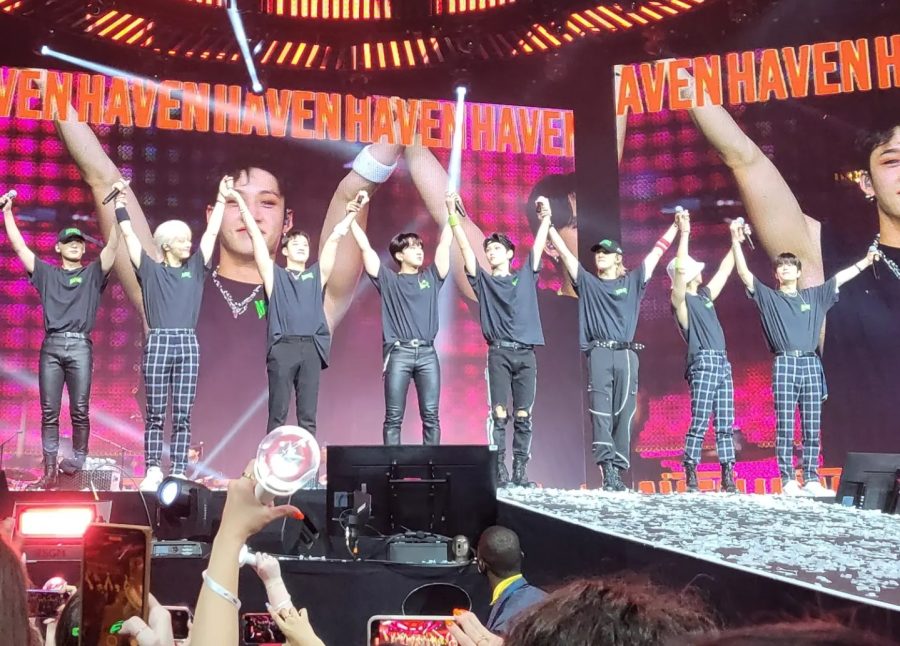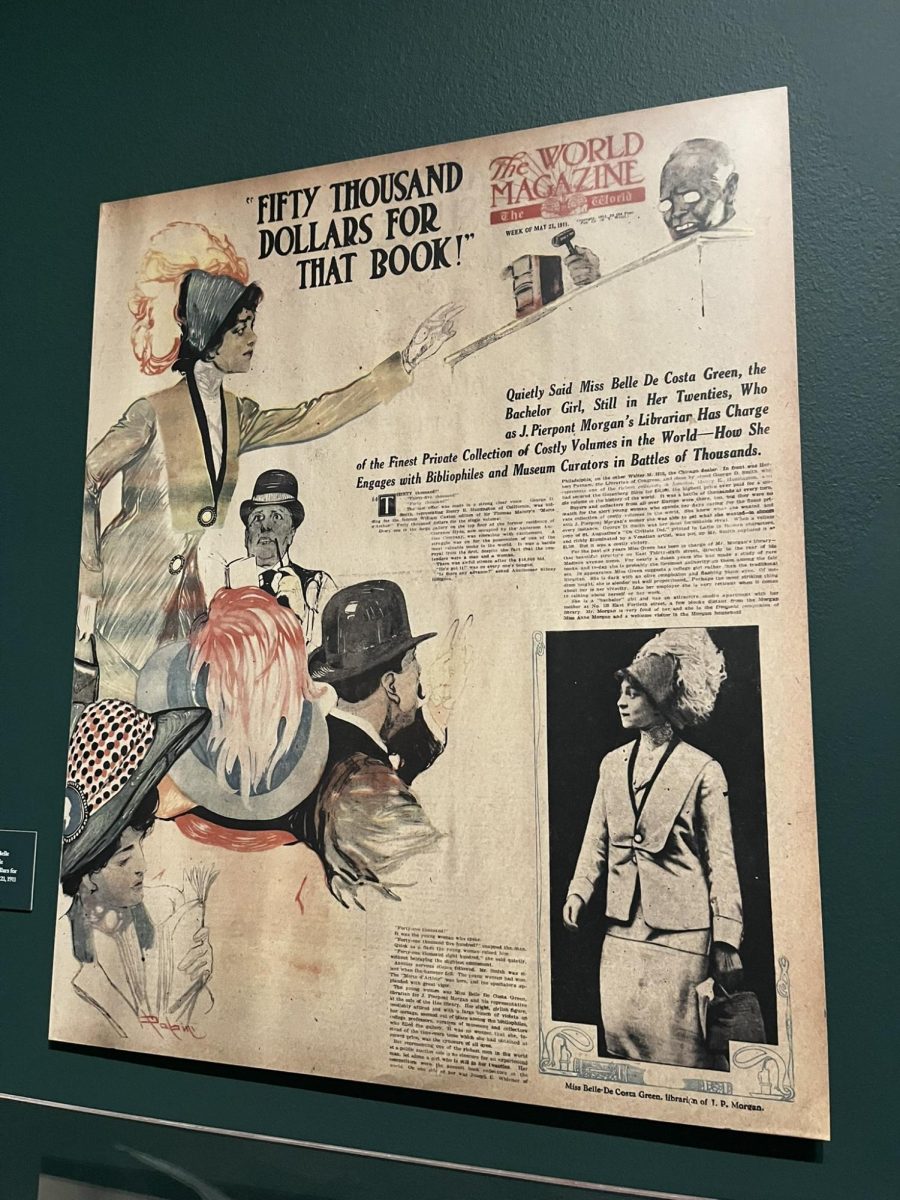With the vast popularity and critical acclaim of her debut album, SOUR, Olivia Rodrigo had lots to live up to when releasing her sophomore album GUTS. The very first song on the album, “all-american b-” begins on a light note. It is palatable and the tone is easygoing, however, the average listener will pick up on an increasing sarcasm regarding the subjects Rodrigo discusses in the first ten-ish lines about maintaining a positive outlook on life and a good image while simultaneously being criticized nonstop and feeling like she is not good enough. Throughout the song, she repeatedly refers to herself as light, optimistic, grateful, and of course: all-American. The repression ends when the beat drops at fifty seconds, thus setting the entire album’s mood, where Rodrigo illustrates her thoughts and experiences relating to heartbreak, societal beauty standards, teenagehood, and love.
Right off the bat, the most noticeable component of the album is how much Rodrigo’s sound has progressed since SOUR. Her first album is primarily composed of ballads about love or heartbreak. It is less introspective and more focused on experiences she has had with people in her life, such as her ex-boyfriend, who was the inspiration for her number one hit “drivers license.” The most similar tracks to GUTS would have to be “good 4 u” and “brutal,” which contain more pop-punk elements such as brash electric guitars and drums. Rodrigo expands on this sound in GUTS, most notably on tracks “ballad of a homeschooled girl,” “get him back!” and “bad idea right?” The album also contains slower songs such as “lacy,” “making the bed,” “logical,” “the grudge” and parts of “vampire,” displaying that Rodrigo can retain the sound that got her on the charts while simultaneously experimenting with a louder and more assertive sound.
Part of what makes Olivia Rodrigo’s music so popular amongst teenagers today is the relatability of her songwriting. In “teenage dream,” she expresses her anxieties about growing up in the spotlight. While most teenagers cannot relate to that, they can still feel that they are under immense pressure in some other aspect of their lives. Many can also relate to her lyrics in the song about the fear of growing up and the uncertainty for the future. In “pretty isn’t pretty,” Rodrigo sings about how she will never feel perfect due to unrealistic expectations for teenage girls, as well as the perpetual cycle of fashion trends that are difficult to keep up with. In “lacy,” she writes about her envy and borderline obsession with a “perfect” woman, whom she likens to an angel. She ends the song with, “I despise my jealous eyes and how hard they fell for you/ Yeah, I despise my rotten mind and how much it worships you.” She hates that she obsesses over “Lacy,” and she goes as far as to make up competitions in her mind between her and the character. This opposition is similar to how girls are often pitted against each other when, really, everyone should appreciate themselves for who they are. Here, Rodrigo is recognizing that problem, but being honest in saying that it’s not that easy to solve, especially at her age.
Rodrigo expresses her flaws throughout the album. It is apparent she would rather be viewed as a counterpart to her teenage fans than as a role model. She does not attempt to create a facade of perfection. In “bad idea right?” she carelessly gets back with her ex-boyfriend, although she and others in her life know she should not. In “ballad of a homeschooled girl,” she describes being awkward and unknowingly self-sabotaging in her social interactions. In “love is embarrassing,” she sings of the mortification one can face after putting in an effort and regretting it. Through her honesty, depictions of realistic situations, and developed sound, Rodrigo has arguably crafted one of the best albums of the year.
























































